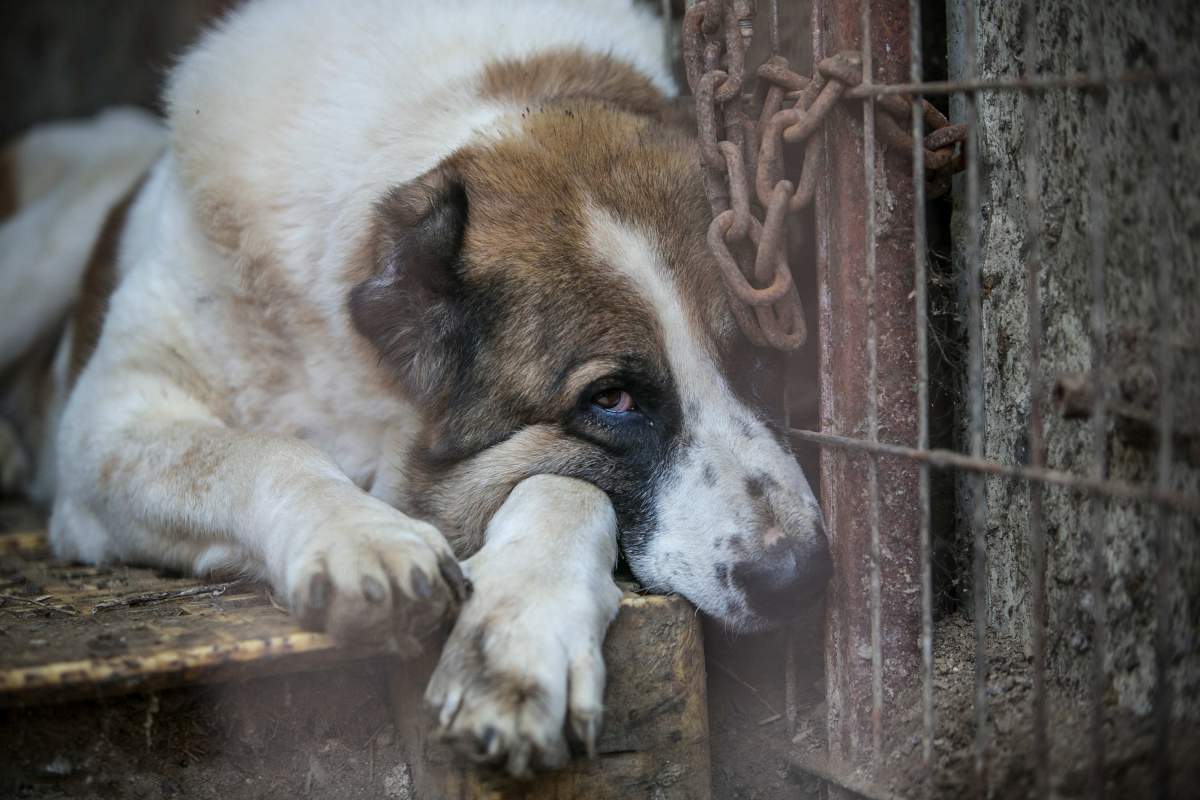The dog meat farm owner says it started with just one dog nearly a decade ago, but today 100 sit caged and chained at a former greenhouse site near Siheung, South Korea.

The farmer, who won’t give Global News his name for fear of public backlash, says he got into the industry by accident.
“At first, I didn’t breed dogs to be sold as meat, but there were too many, so I didn’t know what to do with them,” he said.
It costs about $2,000 a month to feed the animals, who get a bowl of water and food once a day.
The dogs are young, some are just puppies, and range from purebred to mixed breed.
They live in filthy conditions: they are forced to sit and sleep in their own feces.
WATCH: Inside one South Korean dog farm where Canadians are saving animals

It became too much for the farmer, and when he learned Humane Society International was helping operations shut down and transition to another business, he made the decision to give up the canines.

Get breaking National news
“I was in a dilemma, I didn’t want to throw them away or kill the dogs, so I was looking for help and I found this organization so I’m very happy they’re helping,” he said.
It’s the 11th farm shut down by the aid organization.
On the day we visited, a team of rescuers and a vet were checking and vaccinating the animals, giving them a new shot at life.
Nara Kim from Humane Society International says dog meat farming, and consumption of their meat is legal in South Korea, however there are no rules to regulate the industry.
“(There are) 17,000 dog meat farms in Korea, we estimate, but no one knows for sure because the government never did any study,” Kim told Global News.
Kim also says the number of people consuming dog meat is very small, now only popular with older generations who eat it in soup, touted for its health benefit.
The rescued dogs at this farm, about an hour south of Seoul, will now stay in quarantine for a month, before being flown out of South Korea.
The majority will be brought to Canada, where they will be adopted to loving homes.
Steve Jenkins from Campbellville, Ont., jumped at the opportunity to welcome a rescued dog to his animal sanctuary.
One-and-a-half-year-old Alice was rescued from another dog meat farm last fall. She’s now living with Jenkins’ other two dogs, and his pet pig, Esther.
“To see Alice in particular, you know when she arrived, very skittish and her head was down all the time, And you could just see the sadness in her face, and seeing that light come back to her eyes and the enthusiasm to go out and play, and all that sort of stuff, is unbelievably rewarding and satisfying,” Jenkins said.
Ewa Demianowicz with Humane Society International Canada says our country’s involvement is creating a lot of momentum for change in South Korea.
“These rescues really are there to highlight this problem, this issue, and we’re hoping that it’s going to bring change,” Demianowicz said.
They say a government financial program to help transition farmers out of the industry would help save more dogs, but there’s no sign that assistance is coming.
The South Korean government did not respond to Global News’ request for an interview.
For now, it’s left to aid groups to save the animals in South Korea, and take some of them back to Canada to start a new life.











Comments